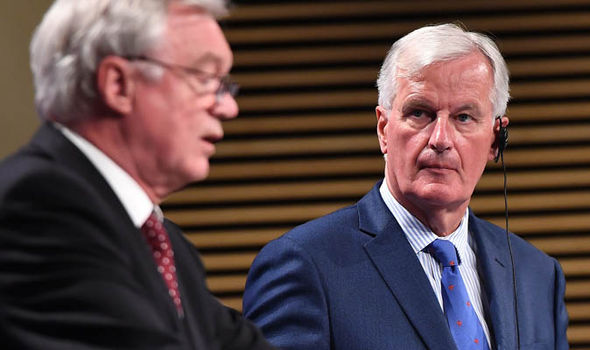Negotiation teachers often scratch their heads looking for scenarios to engage students – something realistic, complex and with high enough stakes to motivate participants. Recently it came to me that we in the UK are sitting on a negotiation goldmine. The Brexit negotiations are certainly real, arguably the most complex we’ve ever undertaken and have dizzyingly high stakes. But what about the people leading them? One imagines Michelle Barnier (for the EU) and David Davis (for the UK) would go out of their way to forge a constructive working relationship. Surprising, then, to witness their irritation, often publicly expressed (see for example “Barnier Accuses Britain of Being Nostalgic”). What might the irritators be?
Neil Rackham and colleagues conducted detailed research which, though dated, still sheds light on the characteristics of skilled negotiators.[1]Neil Rackham, John Carlisle, (1978) “The Effective Negotiator — Part I: “The Behavior of Successful Negotiators., Journal of European Industrial Training, Vol. 2 Issue: 6, pp.6-11 Their method was straightforward: find the most successful negotiators and observe what they do. They had three criteria for “successful”. These negotiators had to be highly rated by both sides, have a track record of significant success over a period of time and a low incidence of implementation failures – in other words the deals should stick. In the end the researchers identified 49 “successful” negotiators and compared the way they conducted 103 negotiation sessions with those of a group of “average” negotiators.
The findings are fascinating. By recording whole meetings the researchers were able to identify particular terms and moves used more (or less) frequently by the successful negotiators. Among the most striking were “irritators.” These are not head-on attacks: “Most negotiators avoid the gratuitous use of direct insults or unfavourable value judgments.” It’s worth quoting the definition of irritators in full: “Certain words and phrases which are commonly used during negotiation have negligible value in persuading the other party but do cause irritation.” [2]Rackham and Carlisle 1978, p. 7 Examples are phrases like “generous offer’ or use of words like “fair” or “reasonable” to describe one’s own proposal. Here’s the catch: it’s those on the OTHER side of the table who need to decide how generous, fair or reasonable the offer is. These forms of “self-praise” are worse than useless. They’re unlikely to convince anyone and will probably “irritate the other party because of the implication that they are unfair, unreasonable and so on.”[3]Ibid p. 7
While even skilled negotiators succumb to irritators on occasion, Rackham and colleagues found they employed just over 2 per hour of speaking time. The average negotiators used nearly 11 irritators per hour. The conclusion? “Most people fail to recognise the counter-productive effect of using positive value judgements about themselves and, in doing so, implying negative judgements of the other party.”[4]Ibid p. 7
So how do M Barnier and Mr Davis measure up? Of course we don’t have access to transcripts of their face-to-face discussions. It’s probably a forlorn hope that they are being retained as a rich source for future negotiation scholars. However, even a brief skim of public pronouncements over the past few months reveals a tendency to succumb to the “irritator” temptation.
On their personal comportment:
Davis: “In British politics, I’m not so friendly; in Europe I’m courteous” (Telegraph, 29/9/17).
Barnier: “There will be no hostility on my side.” (EU Press Release, 19/6/17); “I think I have shown the typical calm of a mountaineer… If I ever truly get angry, you will notice it” (Telegraph, 31/8/17).
On the virtues necessary for effective negotiation:
Davis: “…our discussions this week have exposed yet again that the UK’s approach is substantially more flexible and pragmatic than that of the EU” (Telegraph, 31/8/17).
Barnier: “thank you for your patience, which is a critical virtue for any negotiation” (Mail Online, 21/7/17).
When it comes to the use of “self-praise” Mr Davis simply relayed the words of his Prime Minister, Theresa May: “The UK’s position represents a fair and serious offer…” (BBC News, 22/6/17).
M Barnier was more than a match: “EU positions clear and transparent since day one” (Barnier tweet, 21/8/17).
Unsurprisingly these professional politicians are capable of great subtlety, leaving one to wonder whether the irritation was intended or incidental. When it came to teaching lessons on the technicalities of negotiation, M Barnier asserted: “That’s what we call sequencing.” (FT, 13/6/17). With slightly forced positivity Mr Davis later said: “Let’s continue to work together constructively to put people before process” (Business Insider, 31/8/17). A more recent lesson from M Barnier, “We intend to teach people… what leaving the single market means” (BBC News, 3/9/17), isn’t so much self-praise as a weary schoolteacher spelling out very dark consequences for pupils persisting in wayward conduct.
Like many others I read Rackham’s research with huge chagrin, a dawning recognition of all the times I’ve carelessly employed irritators. It also reminded me of being told I was receiving “generous” offers and thinking “I’ll be the judge of that.” When it comes to the Brexit negotiation I am, along with millions of UK citizens and hundreds of millions of EU citizens, a concerned observer. I want it to succeed but I don’t know what success looks like. I hope that our representatives will drop the irritators and focus instead on things that make negotiation more fruitful. Future blogs will return to the wisdom of Rackham and his colleagues.
________________________
To make sure you do not miss out on regular updates from the Kluwer Mediation Blog, please subscribe here.

References



VG Charlie, useful for us all